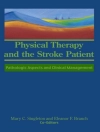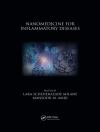The Fourth International Conference on Advanced Data Mining and Applications (ADMA 2008) will be held in Chengdu, China, followed by the last three successful ADMA conferences (2005 in Wu Han, 2006 in Xi’an, and 2007 Harbin). Our major goal of ADMA is to bring together the experts on data mining in the world, and to provide a leading international forum for the dissemination of original research results in data mining, including applications, algorithms, software and systems, and different disciplines with potential applications of data mining. This goal has been partially achieved in a very short time despite the young age of the conference, thanks to the rigorous review process insisted upon, the outstanding list of internationally renowned keynote speakers and the excellent program each year. ADMA is ranked higher than, or very similar to, other data mining conferences (such as PAKDD, PKDD, and SDM) in early 2008 by an independent source: cs-conference-ranking. org. This year we had the pleasure and honor to host illustrious keynote speakers. Our distinguished keynote speakers are Prof. Qiang Yang and Prof. Jiming Liu. Prof. Yang is a tenured Professor and postgraduate studies coordinator at Computer Science and Engineering Department of Hong Kong University of Science and Technology. He is also a member of AAAI, ACM, a senior member of the IEEE, and he is also an as- ciate editor for the IEEE TKDE and IEEE Intelligent Systems, KAIS and WI Journals.
Nick Cercone & Xue Li
Advanced Data Mining and Applications [PDF ebook]
4th International Conference, ADMA 2008, Chengdu, China, October 8-10, 2008, Proceedings
Advanced Data Mining and Applications [PDF ebook]
4th International Conference, ADMA 2008, Chengdu, China, October 8-10, 2008, Proceedings
Dieses Ebook kaufen – und ein weitere GRATIS erhalten!
Sprache Englisch ● Format PDF ● ISBN 9783540881926 ● Herausgeber Nick Cercone & Xue Li ● Verlag Springer Berlin Heidelberg ● Erscheinungsjahr 2008 ● herunterladbar 6 mal ● Währung EUR ● ID 6377461 ● Kopierschutz Adobe DRM
erfordert DRM-fähige Lesetechnologie












